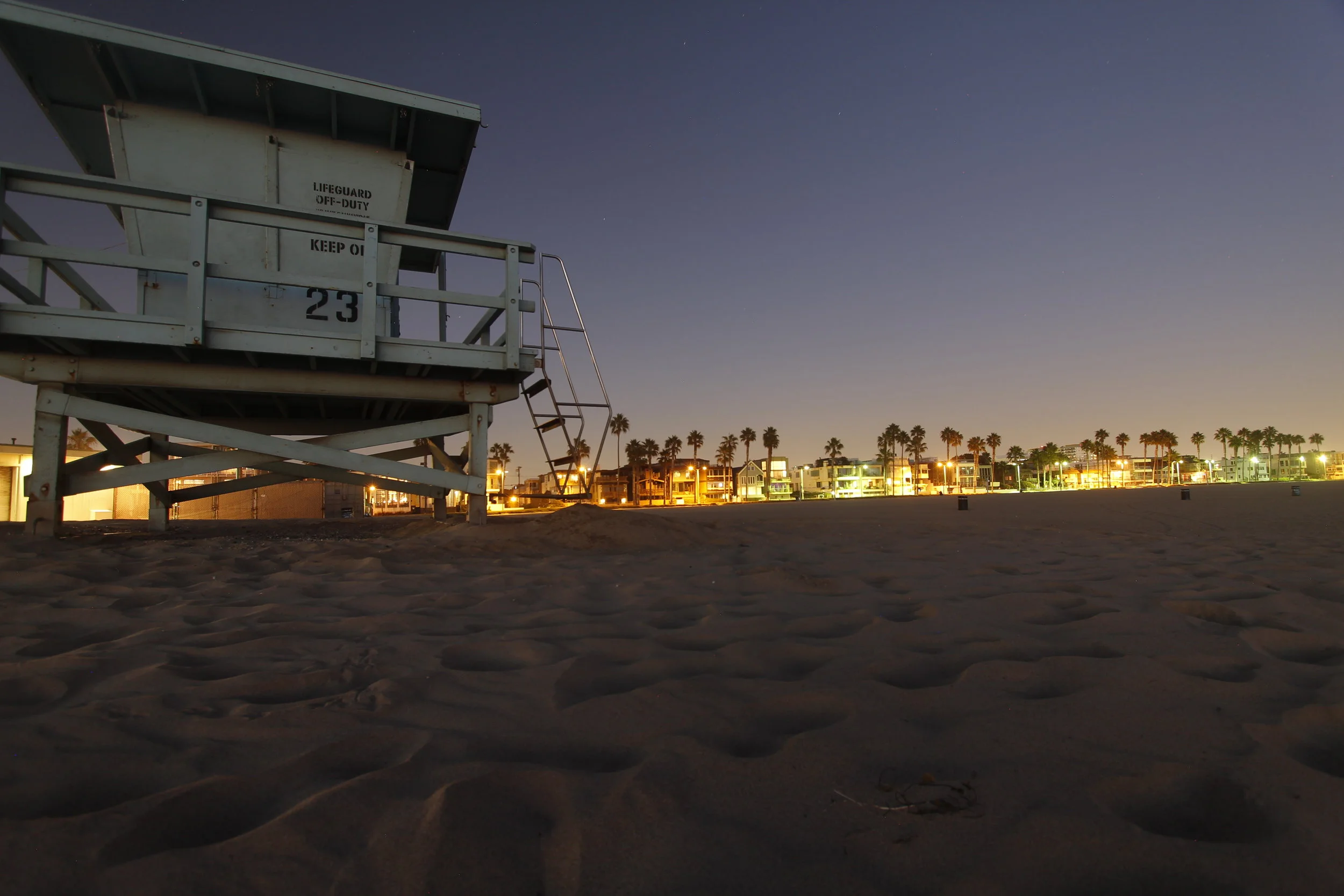What Should You Be Looking For?
Up and Coming MBA Programs
It’s hard to ignore the top ten business schools in America. Of all the applications that are submitted to b-schools each year, the top ten schools receive 75% of them. No wonder the process is so competitive! While it’s a great idea to apply to schools in the top ten if you feel you are competitive and a good fit, there are dozens of other great programs out there which you might want to consider as part of your broader application strategy. Here’s a list of pick-six programs you might want to investigate…
The Evolution of the Modern MBA
The MBA has always been the stalwart of business education. A terminal degree from the start, once achieving the MBA, graduates have always been able to call it quits on their formal education. While the prevailing arc of the MBA curriculum has remained fairly consistent over time, there have been some interesting changes over the years, which has resulted in a new world MBA bearing only a modicum of similarity to the degrees that came before it.
The MBA Facilities Arms Race
In the ever-increasing competition amongst the world’s top business schools, there are several ways each school tries to stand out from the crowd. For the longest time, the best schools could rely on reputation alone, and the flood of top students matriculating at these schools coupled with the incredible opportunities for graduates with top firms on the backend made for a nearly permanent lofty position in the rankings tables. As the demand for the MBA heated up, however, and the philanthropic investment in these schools climbed, each program found itself with plenty of money in their endowment pool to plow back into the program. What has resulted is a facilities arms race that now extends well beyond the top ten or twenty business schools.
Should You Care That an MBA Program is Good at Marketing Itself?
This post is going to feel like its about Wharton, but its not - not really. I'm prompted to write it because of Wharton, but it is about a larger issue, which is whether or not you should have a takeaway when you see that an MBA program is going all in on its marketing. Should you read into it or ignore it? And if you do search out some meaning, is it is good or bad thing when a business school suddenly seems to have hired a new marketing whiz who knows how to game the headlines? Let's dive in.
How Good is Your Target School's MBA Network?
A business school’s network is usually one of the top reasons someone chooses an MBA program. Leveraging both the b-school and also other alumni from a particular school can pay dividends when advancing your post-MBA career, so wisely considering which school will meet your needs in that area is a critical component of the b-school selection process.
Discovering a B-school's Personality
It may sound strange to think of a school having a personality, but the culture found within the walls of the most popular business schools can vary just as widely as the personalities of people.
Finding the right fit between a school’s culture and your own personality can be tricky and is not something you can ignore if you want to be happy and maximize your potential in an MBA program.
Of course “knowing thyself” is the first step in finding a good match with any institutional program.
Are you an introvert or an extrovert? Do you thrive in a competitive environment or do you prefer to operate with an “everyone wins” approach? Do you have a learning style that is energized in the classroom from lectures and discussions, or do you come alive through hands-on, experiential learning? These considerations can help you tune into the programs which will align with the way you are wired, but they don’t even begin to address all the things you should consider. Simple phase of life situations can also affect how well you will dovetail with an MBA program. For example, some programs have mostly single students, while others have a large population of married students, even many with children. Often, schools with more single students do more social events where you end up hanging out with your classmates after classes or on weekends. Does that sound appealing or like your worst nightmare? Even the average number of years of work experience at an MBA program can radically affect that school’s culture, since age is often correlated to maturity and level of seriousness.
Once you do a thorough self-assessment and have a strong feeling for your personal preferences, you can begin to assessment of the schools themselves.
Some schools have a similar culture, and are sometimes associated with each other, such as HBS and Darden, or Fuqua and Kellogg, but don’t think that such reputations mean these schools are exactly the same. Subtle differences can sometimes make a big difference. As an example, Chicago Booth is often compared to Wharton, but did you know that at Wharton, students are ranked? This creates a healthy competition amongst students, but could also add stress to your time there. Often, feedback from Wharton students indicates they are fairly miserable during the program, but tend to enjoy their post-MBA careers more than other program’s graduates.
As we have mentioned before, the best way to ascertain the personality of each school is to visit in person.
Surfing a school’s website or even chatting with current or former students will only get you so far, but visiting a school, sitting in on a class and personally interviewing faculty, staff and students can reveal insights which are otherwise elusive or superficial if only viewed from the outside. You would never marry someone without dating them first, and you should be thinking of b-school in a similar way. Making the wrong decision could derail your career and seriously impact your post MBA happiness. Let us guide your school selection process—you might be surprised how much it can help.
To find out more about your options and how we can help you with your business school application, email us at mba@amerasiaconsulting.com or contact us via http://www.amerasiaconsulting.com/contact.
How to Answer the "What Other MBA Programs Are You Applying To?" Question
Pay particular attention to the question that some b-schools ask during the interview and/or on your application:
What Other Programs Are You Applying To?
Why would they ask this question? The reason is this:
- B-schools are keen to know who they are competing against. They want to know how applicants view the correlation between programs but also if you are using the school as a backup or safe school.
- Note that this question is pretty much asked by MBA programs who have been burned by their "yield" in year's past. That is, the admissions committee extends a lot of invites and only gets a handful of positive replies.
Let's use UCLA Anderson as an illustrative example ...
Why I like the Economist MBA Rankings
The latest MBA rankings from The Economist are out and people are understandably freaking out about some of the odd placements that you can find in their list. Poets and Quants has already done an impeccable job running all this down, so I am not going to try to repeat all the great work John Byrne already did. But you should definitely check out the P&Q piece on it. What I want to talk about is why I am happy P&Q ran that extensive post on those rankings (rather than dismissing them) and, indeed, why I am happy these Economist rankings even exist.
Why MBA Candidates Should Ditch the Phrase "Safety School"
Today we are going to take the term "Safety School" and put it through the shredder. Reasonable minds can probably disagree on what the term should mean, but what I want to do is explain why I personally do not believe that "Safety School" should be part of an MBA applicant's lexicon.
First, the term is used incorrectly about 90% of the time. When applicants say "safety school," what they often mean is "a school that is really good but that hopefully I have a better chance to get into." If you are using the term this way, just as a shorthand, that is fine but make sure that it's clarified with anyone you are working with, such as your consultant. The real use for "safety school" should probably translate more or less to "a sure bet." With college applicants - due to the pressure to be enrolled on an exact timeline (following high school graduation, of course) - a "safety school" is a very real thing; you simply have to pick some programs that you are sure to get into. Often this means a program from that student's home state, sometimes with sheer numerical thresholds (lacking holistic admissions processes). If you go to school in California and have a certain matrix of GPA and test scores, you can feel "safe" about getting into certain Cal-State programs. That's a safety school. Ross and Duke Fuqua are not safety schools. Now, what if you are using the term in the right way?
How do I decide which top MBA programs to apply to?
This time of year, the biggest question from clients seems to be about which schools they should be targeting for application. We understand that with so many choices out there, both domestically in the US and internationally, it can be a bit overwhelming. Time and time again, we find ourselves having to remind everyone of the one key word to focus on when choosing schools: FIT.
Ranking the Best MBA Programs - Making Our 2015 Data Public
We've had a number of requests for this, so we're making public the data we used to come up with our 2015 ranking of the "Best MBA Program for".
Basically, this blog post is a data dump of data from 2014/2015 that the career centers from each of the MBA programs we covered. We post links to where you can find those reports at the bottom.
What this blog post is not: a careful analysis of this employment data. In fact, we had to aggregate some data from particular business schools in order to make consistent comparisons across industries. So draw what conclusions you can from what we present.
Rest assured, we are keeping our most up to date career data analysis and employment numbers for our current clients.
How to Negotiate Your MBA Financial Aid Offer - A Few Tips
Today's blog post something we run every year about this time because we honestly get overrun with requests on this subject. It is about negotiating your offer of admission ... except that it's not. Because "negotiation" is not what you do when it comes to securing more financial aid from a business school. The term of art for what you are going to be doing is "asking." Let us explain. Obviously, any discussion of an offer in this context automatically means we're dealing with some good news: you've been accepted. So congrats on that! However, with the news that a b-school wants you to enroll comes the sobering reality that they also want you to *pay* for that privilege. Sure, offers often come with dollar signs attached, but the amount left in the "you" column is almost always going to be the bigger number. And that fact tends to bring up the following question: "How can I negotiate my offer?"
Rankings: Best MBA Programs for Finance Jobs (2015) - Chicago Booth
Rankings: Best MBA Programs for Finance Jobs (2015) - Amerasia's attempt at ranking top MBA programs by industry and based on publicly available data. Our motivation for doing this is quite simple - business school rankings differ quite drastically from publication to publication. We started with the very numbers that the school's career centers are reporting via their respective employment reporting. You need to see the end result first. In other words, what industries are hiring MBA graduates and from what schools?
Mind Mapping Columbia Business School - A Visualization Tool for Applicants
I wanted to see if I could simplify it for those applicants currently working on their essays and application, while trying to figure out "Why Columbia?" I created a visual representation (mindmap) of the site, which ended up looking like the New York subway system, and I wanted to share it with you. Hopefully this will allow you to see where you fit into CBS' clubs, curriculum and student culture.
Tuck vs. Kellogg - Which MBA for entrepreneurial finance / private equity / venture capital?
We all know that these jobs are hard to get no matter what school you go to. For any "career switcher" out there, you are going to face the challenges anyone with a more finance-oriented background would have - except that a career switcher is going to face these issues on some order of magnitude that is higher and harder. The factors below already take that into consideration.
Kellogg vs. Tuck for PE/VC - it's a toss up.





















